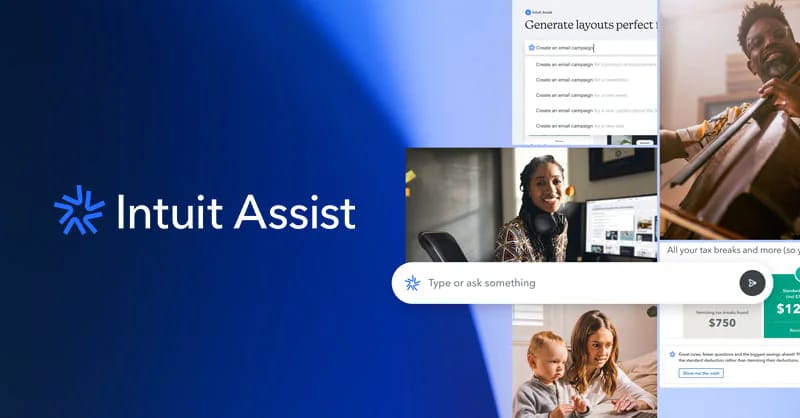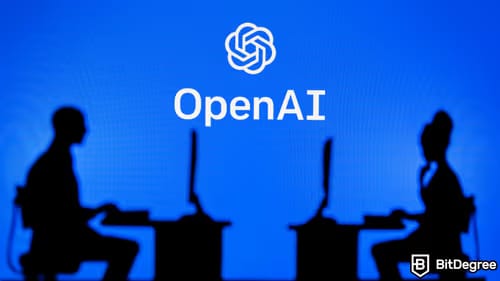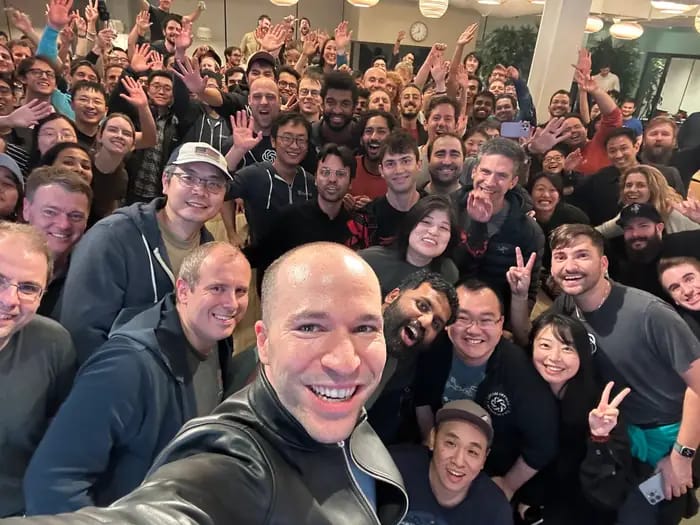- The Daily Munch
- Posts
- ✂️ 100,000+ tech layoffs this year
✂️ 100,000+ tech layoffs this year
PLUS: OpenAI accused of illegally restricting employees; AT&T paid hacker $370,000 to delete stolen data

Today’s market performance 🏆️
S&P 500: +0.28% 📈
Nasdaq: +0.40% 📈
Dow 30: +0.53% 📈
Russell 2000: 1.79% 📈
FROM OUR FRIENDS @ AE STUDIO
Your Brilliant Business Idea Just Got a New Best Friend
Got a business idea? Any idea? We're not picky. Big, small, "I thought of this in the shower" type stuff–we want it all. Whether you're dreaming of building an empire or just figuring out how to stop shuffling spreadsheets, we're here for it.
Our AI Ideas Generator asks you 3 questions and emails you a custom-built report of AI-powered solutions unique to your business.
Imagine having a hyper-intelligent, never-sleeps, doesn't-need-coffee AI solutions machine at your beck and call. That's our AI Ideas Generator. It takes your business conundrum, shakes it up with some LLM magic and–voila!--emails you a bespoke report of AI-powered solutions.
Outsmart, Outpace, Outdo: Whether you're aiming to leapfrog the competition or just be best-in-class in your industry, our custom AI solutions have you covered.
TOP STORY
✂️ 100,000+ tech layoffs this year

Silicon Valley from above (📸 Reuters)
The tech layoff wave is going crazy in 2024.
Following significant workforce reductions in both 2022 and 2023, 2024 is shaping up to be the biggest year of layoffs in a very long time.
The sector has already cut over 106,00 employees year-to-date across 362 companies.
Some of the biggest companies that axed their employees include Amazon, Google, Tesla, TikTok, and Microsoft, who have cut anywhere from a single group of workers to 10% of their global workforce in the case of Tesla.
📈 The Magnificent Seven ETF ($MAGS), an ETF that tracks the top 7 technology stocks (Meta, Apple, Nvidia, Google, Amazon, Tesla, and Microsoft), is up 47.06% this year.
Why is this happening? Well, because it’s the tech sector we’re talking about, the easy answer is to just say AI.
Which is true, kind of.
💬 As much as 20% of the U.S. workforce is exposed to possible AI-related job displacement.

Intuit Assist — a generative AI-powered financial assistant
But Intuit’s latest round of layoffs gave us a much clearer picture of what AI taking jobs really means.
Last week, the parent company behind Credit Karma, QuickBooks, and TurboTax revealed plans to lay off 1,800 employees to focus on AI and redesign its products to use AI instead of traditional methods.
However, Intuit is adamant that they are NOT replacing these workers with AI bots; rather, they are replacing them with employees who have a better understanding of working with AI.
However, the biggest requisite for working there is proficiency in AI. So, for all the people saying AI will replace their jobs, that’s not true.
Instead, it’ll be the people who know how to use AI who will take your jobs.
📈 Intuit ($INTU) stock is up 34.10% in the past year.
ARTIFICIAL INTELIGENCE
🤫 OpenAI accused of illegally restricting employees

📸 BitDegree
OpenAI has been accused of placing illegal restrictions on how employees can communicate with government regulators.
In a letter sent to the Securities and Exchange Commission, lawyers representing the whistleblowers asked the SEC to investigate OpenAI's severance, non-disparagement, and non-disclosure agreements.
According to the whistleblowers who called out OpenAI:
“The agreements barred employees and investors from communicating with the SEC about securities violations, forced them to waive whistleblower incentives and compensation, and required them to inform the company of any contact with government regulators.”
Great, even more drama for the Sam Altman crew.
And it didn’t stop there…

📸 The New York Times/Redux
💬 Former OpenAI employees must sign a restrictive off-boarding agreement with nondisclosure and non-disparagement clauses, forbidding them from criticizing the company or acknowledging the NDA.
Violating or refusing to sign it can result in losing all vested equity, potentially worth millions.

📸 Greg Brockman
The letter also says the SEC was told that “OpenAI’s prior NDAs violated the law by requiring its employees to sign illegally restrictive contracts to obtain employment, severance payments, and other financial consideration.”
Would that really be such a bad thing, though? Well, yes.
If this is true, employees and investors would be discouraged from reporting securities violations, which can allow illegal or unethical practices to continue unchecked.
And we wouldn’t want that, would we?
It’s crazy to think OpenAI has already become one of the most devious companies.
💬 If the federal government is going to stay “one step ahead of artificial intelligence, OpenAI’s nondisclosure agreements must change.”
TELECOMMUNICATIONS
💰️ AT&T paid hacker $370,000 to delete stolen data

📸 SecNews.gr
Earlier this year, a hacker group called ShinyHunters stole call and text records from almost all 109 million AT&T customers.
Oops! Because of the vast amount of stolen data, AT&T obviously needed to step up and fix this.
So, in order to patch up their massive blunder, they did what any respectable multi-billion dollar company would do: throw money at the problem.
AT&T reportedly paid the ShinyHunters group around $370,000 to delete the customer data that was stolen from it.
The hackers then provided a video showing that they had deleted the data to prove their deed had been done.
💬 In March, AT&T acknowledged that a data leak obtained information from more than 7.6 million current customers and 65 million former customers.
Wait, but how do you even negotiate with a hacker group?
AT&T reportedly negotiated through an intermediary called Reddington, acting on behalf of the ShinyHunters group.
The hackers originally asked for $1 million, because why not, before AT&T finally talked them down to $370,000.
Pretty sweet deal for AT&T if you ask me, but all I’m thinking about is how happy I am to be a T-Mobile Stan.
📉 AT&T ($T) stock is down -24.93% in the past 5 years.


Reply